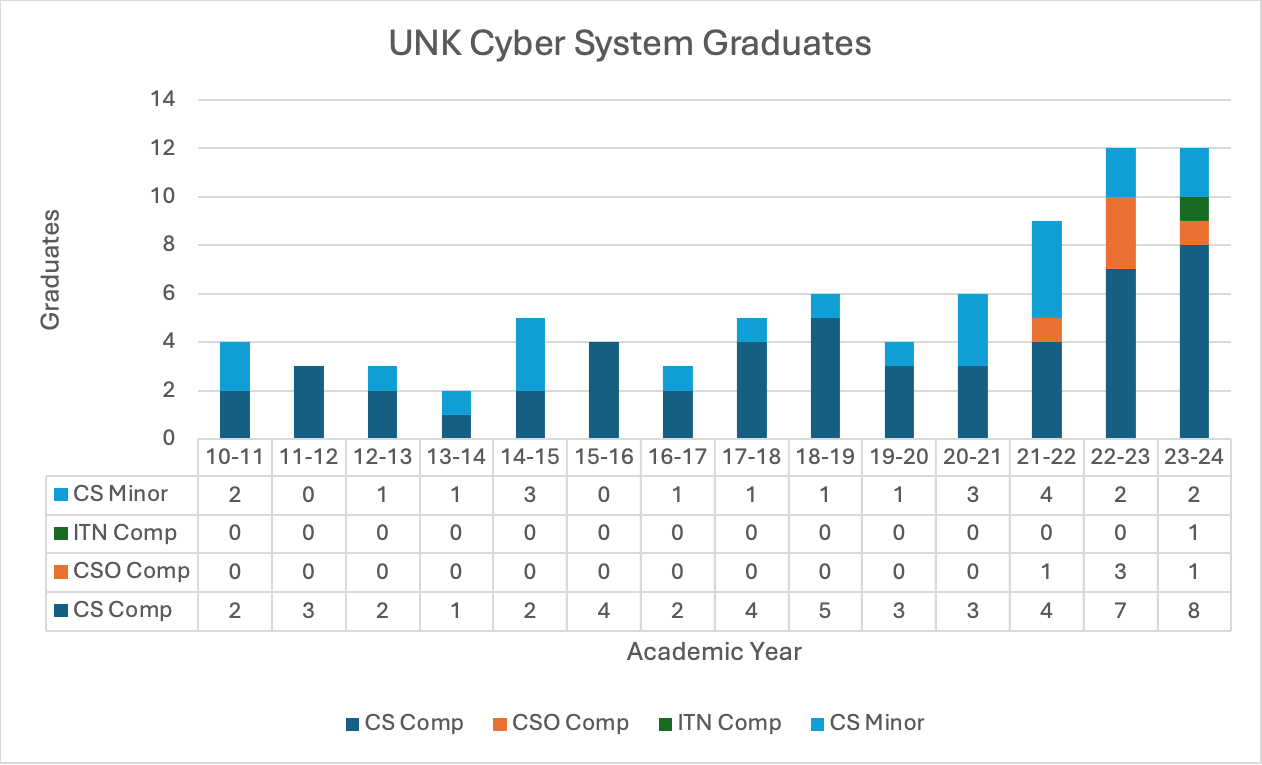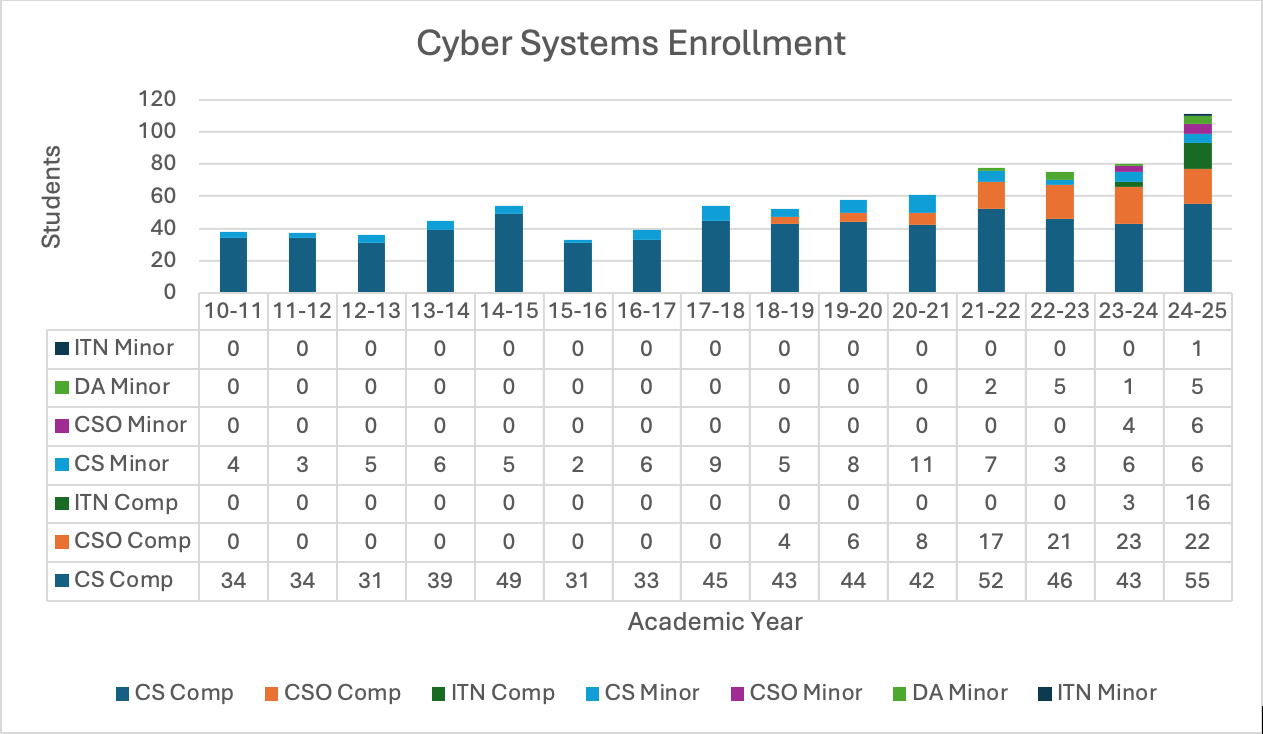The UNK Cyber Systems Department seeks to produce well-prepared Cyber Systems graduates who in their careers:
- Lead a team within an ethical and legal framework.
- Demonstrate professionalism and adaptability within the corporate or government landscape.
- Engage in continuous learning and skill development.
- Apply critical thinking and creative problem-solving skills in the industries of computing and computing applications, information systems and networks, and securing computer and network systems.
- Communicate effectively and collaborate productively in multidisciplinary and diverse team environments.
All UNK Cyber System graduates from the Computer Science Comprehensive, Cyber Security Operations Comprehensive, and Information Technology Comprehensive will have the ability to:
- Analyze a complex computing problem and apply principles of computing and other relevant disciplines to identify solutions.
- Design, implement, and evaluate a computing-based solution to meet a given set of computing requirements in the context of the program’s discipline.
- Communicate effectively in a variety of professional contexts.
- Recognize professional responsibilities and make informed judgments in computing practice based on legal and ethical principles.
- Function effectively as a member or leader of a team engaged in activities appropriate to the program’s discipline.
A program specific student outcome for Computer Science students is that graduates of the Computer Science Comprehensive program will be able to:
- Apply computer science theory and software development fundamentals to produce computing-based solutions.
A program specific student outcome for Cyber Security students is that graduates of the Cyber Security Comprehensive program will be able to:
- Apply security principles and practices to maintain operations in the presence of risks and threats.
A program specific student outcome for Information Technology and Networking students is that graduates of the Information Technology and Networking Comprehensive program will be able to:
Use systemic approaches to select, develop, apply, integrate, and administer secure computing technologies to accomplish user goals.
UNK Cyber Systems Enrollment Data


The assessment process for the program is centered around the Student Outcomes. They are designed such that all the students within the program are evaluated on their progress toward reaching the Student Outcomes. However, since some of the outcomes contain multiple attributes, they are broken into smaller pieces that contain a single skill to observe so that the evaluation is more clear. For example, the third Student Outcome states, “Communicate effectively in a variety of professional contexts.” Those contexts can be defined as technical and non-technical contexts each within the medium of verbal communication and written communication. Thus, the third Student Outcome can be broken into four independent skills to be evaluated for program assessment. For simplicity, these individual skills will be referred to as Student Outcome attributes.
The assessment process is broken into two phases so that areas of concern can be identified and addressed quicker. Each attribute of the Student Outcomes is assessed in a course from the program’s core approximately midway through the program as well as near the end of the program’s completion. In both phases, the assessments are tied to a regular course assessment where the instructor can observe the students’ competencies of the outcome. The students’ work is classified as either Does not Meet Expectations, Meets Expectations, or Exceeds Expectations for each student objective observed.
Every course assessment that is used for program assessments has a specific rubric that allows instructors to make the students’ progress for each of the Student Outcome attributes that are expected to be observed. The instructor completes the rubric while grading the assessments and then reports the totals to a Qualtrics survey. The specific data that is reported to the survey includes the number of students who do not meet expectations, the number of students who meet expectations, and the number of students who exceed expectations for each Student Outcome attribute. The results of the Qualtrics survey are consolidated into a format that makes it easy for faculty to annually analyze and identify areas of weakness.
 Students First
Students First Measuring success
Measuring success

 The Department’s vision is empowering difference makers to solve cyber challenges through personalized, innovative learning and research opportunities.
The Department’s vision is empowering difference makers to solve cyber challenges through personalized, innovative learning and research opportunities. 








